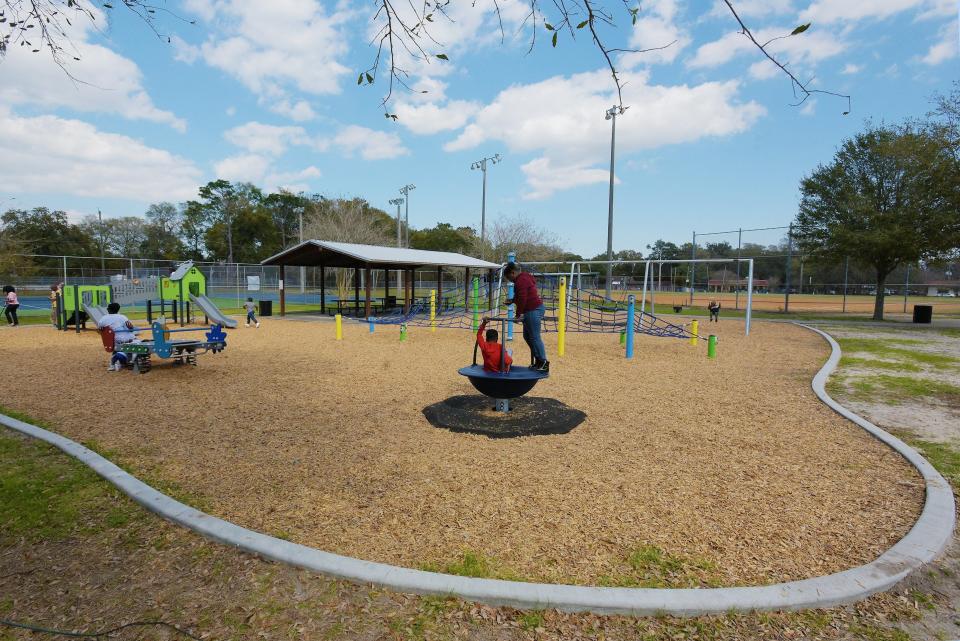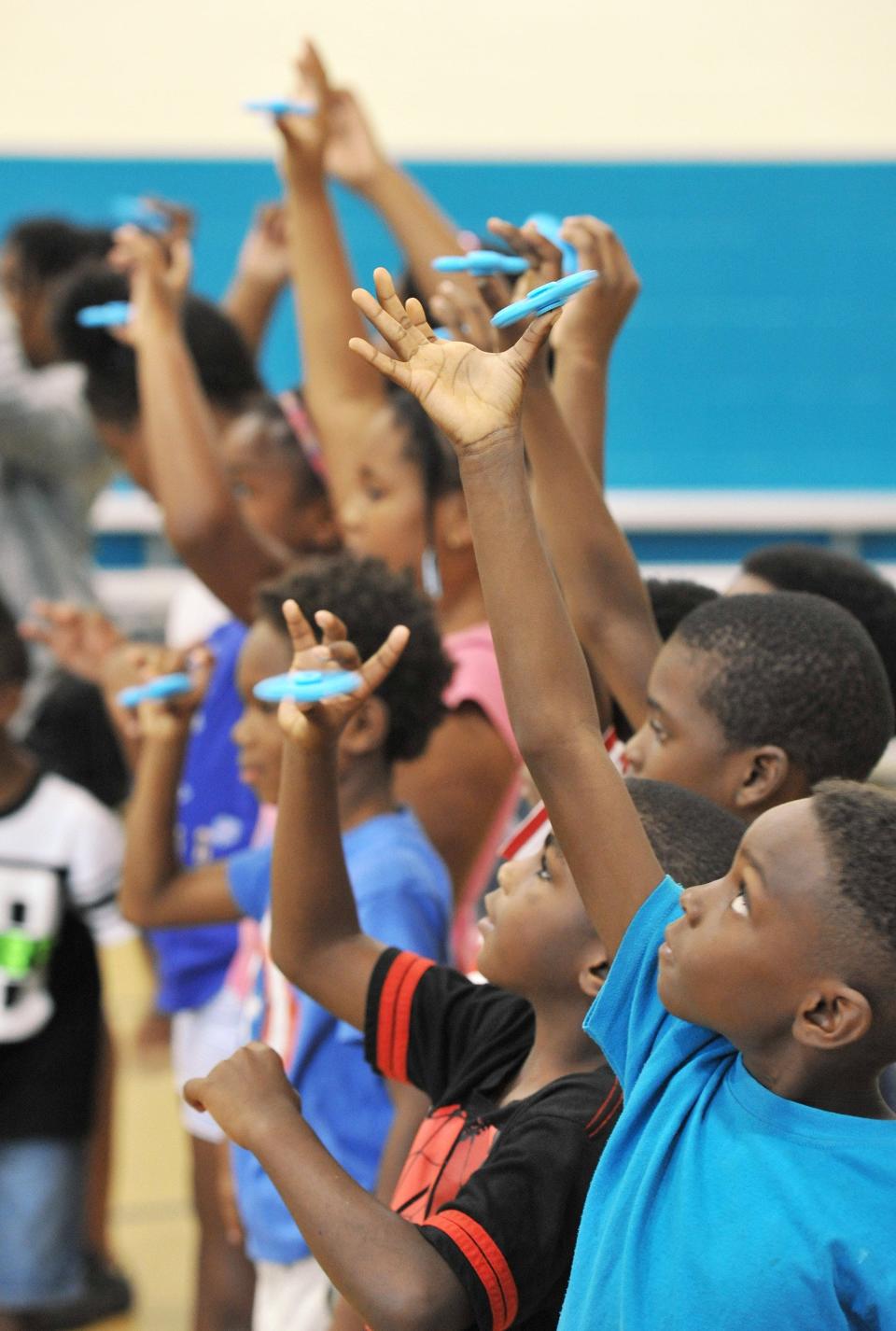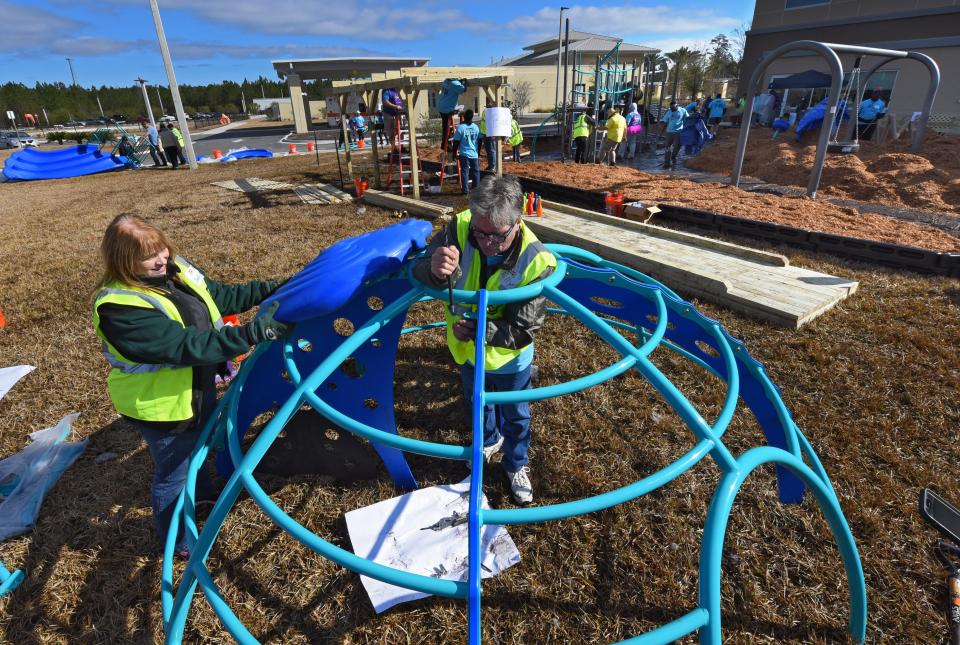Is your child overweight? What you need to know about the latest child obesity guidelines
An 8-year-old girl dreamed of performing cartwheels.
But she was overweight — considered obese, in fact — and was unable to do so. She had high blood pressure and high cholesterol levels and pre-diabetes. Intervention was necessary to prevent the child from becoming an unhealthy obese adult.
Dr. Madeline Joseph, the girl's pediatrician at the UF Health Pediatric Multispecialty Center in Jacksonville, is one of the authors of the American Academy of Pediatrics' new guidance on childhood obesity, which urges pediatricians to offer therapy and medication early in children's lives, rather than delaying treatment to see if they outgrow obesity. For the 8-year-old girl, Joseph used her cartwheel aspiration to help her drop the pounds through therapy such as behavior modification.
"What motivates a person to make a change could be as simple as … a girl wanting to do a cartwheel," said Joseph, an emergency medicine professor who is UF Health Jacksonville's division chief of pediatric bariatrics.

Heavy concern: When preschoolers gain weight too fast, their lifelong risk of obesity surges
Obesity epidemic:How will it end? With kids.
What is obesity?
The body mass index, or BMI, is a guideline of weight in relation to height and the standard measure of obesity and what is considered overweight. Obesity is defined as a BMI at or above the 95th percentile for children and teens of the same age and sex, according to the Academy of Pediatrics. Overweight is defined as a BMI at or above the 85th percentile and below the 95th percentile for children and teens of the same age and sex.
At least 14.4 million U.S. children and teens live with what is considered a common chronic disease, according to the academy.

Obesity can lead to serious short- and long-term health concerns when left untreated, including cardiovascular diseases and diabetes. "It can be treated successfully with the recognition that complex genetic, physiologic, socioeconomic and environmental factors are at play," according to the academy.
"Research tells us that we need to take a close look at families — where they live, their access to nutritious food, health care and opportunities for physical activity — as well as other factors that are associated with health, quality-of-life outcomes and risks," said Dr. Sarah Hampl, a lead author of the new guidelines. "Our kids need the medical support, understanding and resources we can provide within a treatment plan that involves the whole family."
The science:Obesity was long considered a personal failing. Science shows it's not.
More:Diabetes in kids and young people is projected to dramatically surge. Can it be prevented?
What are the new guidelines?
Early intervention is key in the new guidelines, which are the first issued in 15 years. The previous "watchful waiting" approach — delaying treatment in hopes children outgrow their excessive weight — was not "appropriate," according to Dr. Sandra Hassink, another author of the report.
The most effective intervention requires 26 hours over three to 12 months of "face-to-face, family-based, multicomponent treatment," including behavior modification, according to the academy. "We get to the bottom of what's going on through motivational interviewing," Joseph said. "We've got to get it right."
The guidelines state, "The foundation of all comprehensive obesity treatment is helping the child/adolescent and the family change lifestyle, behavioral and environmental factors that will allow them to manage their obesity in their individual health and environmental context. Families should be active and core partners in decision-making in all levels of care."

Other treatments may include nutrition support, pharmacotherapy and metabolic and bariatric surgery. Joseph said medication and surgery should be last resorts.
Health care providers must pay close attention to children's weight, beginning when they are 2 years old. Eating habits are learned early and must be unlearned early. "The longer they go on, the harder they are to break," Joseph said.
"There is a tendency to avoid it, so much stigma," she said. Working with pediatricians and parents, "we need to … address it as a disease. We're here to support you. Here are the options."
Weight loss drugs and surgery for kids: Why new obesity guidance is drawing scrutiny.
How bad is the problem in Duval County and Florida?
In Duval County one in seven children or teens are obese, one in 10 statewide, Joseph said. In recent years the COVID-19 pandemic has been a contributing factor, providing the "perfect storm" of circumstances for childhood weight gain.
Children were indoors and isolated, with little physical activity. Some of them had "struggling parents" who over-relied on inexpensive fast food, she said. "Pretty substantial" weight gain of 30 to 40 pounds resulted, she said.
Florida childhood obesity: ‘Urgent ... systemic change’ needed to address causes
Almost 16% of Florida youth are significantly overweight, the 22nd-highest rate in the nation, according to the third annual childhood obesity report from the Robert Wood Johnson Foundation, "From Crisis to Opportunity: Reforming Our Nation’s Policies to Help All Children Grow Up Healthy."
The latest state figure of 15.8% — from the 2019-2020 National Survey of Children’s Health based on information from parents — is lower than the 16.2% national obesity rate and the 17.8% cited for Florida in the previous year's report.
At least Florida has far more physical activity options year-round than states with harsh winter weather. But "we have room to improve," Joseph said.
How can the public help?
Push for communities to have more parks, sidewalks, gardens and other infrastructure that promotes physical activity and healthy eating.
Areas that don't have such options are called "obesogenic environments," where physical, economic, policy, social and cultural factors promote obesity.
Another option is pushing against high concentrations of fast-food outlets. Joseph urged parents to try to avoid them.
"This problem is not going away," she said.

Did the girl accomplish her cartwheel dream?
Yes. and she demonstrated her newfound ability in front of Joseph.
"It was amazing to me, she did it, she cartwheeled down the hallway," she said. "It was a happy day for all of us."
The girl's weight loss also reversed her pre-diabetes. But that was not her goal.
"It was all about the fun part," Joseph said.
bcravey@jacksonville.com, (904) 359-4109
This article originally appeared on Florida Times-Union: Jacksonville pediatrician: 'Early intervention' key to child obesity

